- Home
- Dan Abnett
Saturnine Page 7
Saturnine Read online
Page 7
‘It’s there I wanted to put him. The Khan at Colossi, the Angel at Gorgon. But it will feel, to him, that I’m acquiescing to his desire for aggressive tactics. Faces are saved and honour is retained.’
‘So you handled him?’
‘I did. And I don’t like that.’ Dorn sighed. ‘He’s the Khan, for Throne’s sake. The great Warhawk. His doctrine of combat is superlative. As a warlord, I’d rank only Roboute above him.’
‘And Roboute’s not here.’
‘He’s not.’
Valdor nodded. ‘I’d agree with your assessment. Roboute, the Khan… There’s really only one other.’
‘Don’t flatter me, Constantin.’
Valdor smiled. ‘I wasn’t even including you, Rogal. You’re Praetorian. The list starts with you. No, I meant, back in the day…’
‘Ah. Yes. Him.’
‘Him, indeed.’
‘Well, He’s the damned reason we’re doing any of this,’ said Dorn. He paused. ‘No, I don’t like having to handle Jaghatai. But it’s necessary. He is wilfully independent. The Angel, well, I just ask, and he does. It’s a different kind of loyalty. And you-‘
‘Me?’ asked Valdor
‘I want you at Colossi.’
Valdor frowned. ‘My sole duty is His protection,’ he said simply. ‘The Custodians are withdrawn to the Sanctum. That-‘
‘I need your power in the field of war,’ said Dorn. ‘We must be allies, and I trust that we are.’
‘I suppose,’ Valdor said, with reluctance, ‘I can release a Custodian force into the field, provided the main bulk remains in the Sanctum on watch. Colossi, you say?’
‘Yes.’
‘To keep an eye on your brother?’
‘No, to fight the bastards.’
‘And keep an eye on him?’
‘Yes.’
Valdor smiled faintly.
‘I’m glad of the clash, to be fair,’ Dorn admitted. ‘Letting the Khan have his way a little.’
‘Why?’
‘This entire battle sphere is me against the Lord of Iron. Strategy, counter-strategy. Doctrine against doctrine. And we both know it. We’re both reading each other, predicting… And we’re good at it.’
‘You’ve been rehearsing for decades.’
‘I never thought it would come to a practical test. I just worry that we’re both too good at it. Ploy, block, ploy, block… Stalemate. But if I can introduce a more random factor, one I haven’t specifically crafted…’
‘Like the Great Khan, cut loose?’ asked the lord of the Legio Custodes.
Dorn nodded. ‘It might introduce a small, unscripted element,’ he said.
‘It’s what Perturabo did to us at the port of the Lion. He let Kroeger have his run, and it cost us. Perhaps I can do likewise, on a grander scale, with Jaghatai. Perhaps, in time, that might be enough to break dear Perturabo’s expectations and skew his decisions.’
‘So,’ said Valdor, ‘your complex and utterly comprehensive plan of war now includes the unplannable?’
‘It is a strange time, Constantin.’
All the candle flames suddenly flickered. A couple went out, hoisting dribbles of blue smoke. The outer door had opened and closed without the Custodian or the Huscarl reacting.
They did now, belatedly. An odd, stilling pressure had passed through the room. There was a half-shadow near the table at Dorn’s side, as though a patch of air had been smeared with grease.
Tsutomu and Gadwalder both realised what it was, and lowered their weapons.
Dorn had to concentrate for a second. Even right in front of him, she shifted so easily, like a peripheral image.
Jenetia Krole, Mistress of the Silent Sisterhood, saluted him.
‘I’m glad you could join me, mistress,’ said Dorn.
She signed a response, her pale face impassive.
‘Yes, anywhere,’ Dorn replied, reading the thoughtmark of her hands.
Krole took a seat at the far end of the table. She nodded to Valdor. The deadening, flavourless nothingness of her psychic nullity permeated the room like an absence seizure. They felt the wrongness of it in the air.
‘I asked Mistress Krole to attend for the same reason I requested this unremarked location,’ said Dorn. ‘To ensure the privacy of our conversation.’
‘So now we can dispense with small talk and begin?’ asked Valdor.
An inner door opened. Malcador the Sigillite, robed and cowled, emerged from an anteroom. He took his place at the other end of the table.
‘Now we can,’ said Dorn.
THREE
* * *
Krole
Whisper it Muster point
I am aware I am present simply as a cloak. I am an instrument, placed at the end of the table, so that others may talk unguardedly. I am nothing, and my nothingness gives me great value.
They barely see me. They try. Even with their immortal senses, they struggle. I am a smudge. A smear. A piece of stained light in which the image of a woman occasionally appears, if you strain to look. They don’t, unless they are addressing me. I am hard to look at. Harder still to bear. I am an ache in their joints, a clench in their jaws, the taste of bile in their throats.
I see everything.
I don’t participate. I’m not here to talk. I’m just here to be. So I watch, for there is nothing else to do. I watch the flames of the candles flicker. Never the same shape twice, like snowflakes. The rising smoke-streaks of the wicks that simply died when I walked in. The whorls of the wood in the tabletop, tight lines marking years gone by. The stone walls of the old gallery. Uneven. Covered in bas-relief carving once, the emblems long scoured back to faint shapes by the process of passing touch and faster-passing time. This was a chapel once. I read so, in a book. A holy place, when things were still allowed to be holy. I wonder what was prayed for here? Health? Victory? Long life? Good crops? What were the images of? That shape there. Was that a god? A bear? A stag? An altar? It’s hard to know. I make sense of some shapes, but then one may make sense of clouds, and read dragons and gods and demigods in the sky. The mind does that. It fills in blanks, and provides a semblance of meaning where meaning lacks. It is impossible to say what was really on these walls. The myths have been erased.
Gods, demigods and heroes still exist, though. I sit, looking at them as they converse. I wonder who will write their myths, and whether they will endure, or be erased by time and the unfaithful memory of man.
They would make good myths. I hope they get the chance. Rogal, I admire him. He is talking. He is the focus of all our trust. Everything hangs upon him, like the heaviest case of armour ever made, plate forged from the hyperdense matter of a neutron star. His armour is surprisingly plain. Grand, yes, as befits a primarch-son, more ornate than the suit worn by his man at the door. But utilitarian. Functional. It is there to protect him, not impress others. His bearing does that. The high line of his cheekbone, the stark white of his hair, the tone of his voice, like the hush-surge of an ocean.
He talks. I do not pay close attention. I am not here for my opinion. I wonder if he even expects me to listen, or assumes my blankness is as internal as it is external. He talks of defence lines and intersecting strategies. I’m not sure how he keeps the surfeit of detail so readily at the front of his mind. This is the most complex battle ever fought. He knows every line of it by rote, like a favourite poem. I review his plan daily, and understand perhaps a third of it. I could not do it, and I have noted ability in that discipline. He was born to do this, and no other could.
Constantin listens, makes comments. He follows as well as I do, which is very well, but not well enough. I have known him the longest.
He was the one that first took me to kneel before the Throne, and brought me into this life. He was the one who found a purpose to fill the otherwise hollow girl. My life has been unpleasant, but it would have been more unpleasant if he had not taken me out of Albia. I will be sorry w
hen he dies.
And he will. He is a Custodian. That is a very specific duty. A warrior of the Legiones Astartes may die in battle, as a negative
consequence of battle, but a Custodian lives to give his life. Like Tsutomu Pearlfisher Adriat Malpath Pryope Uranus Prospero Calastar there, at the door. I know him well, too; I know all the Custodians, well enough to know the entirety of the title-names engraved inside their auramite armour, even Constantin’s one thousand nine hundred and thirty-two. They are not warriors, they are protectors. They live to die, to place themselves in front of the Throne and suffer any mortal stroke. Space Marines pledge to fight to the death. So do I, and all my pariah sisters. But Custodians, they pledge to fight for the life. It’s not semantics. It means their deaths are inevitable rather than merely possible.
Constantine’s armour is magnificent. A gold finer than gold, more ornate than the Praetorian’s, for it is ceremonial before it is anything else. Rogal took down all the splendour of the Palace when he fortified it. I think he would have had the Custodians cast off their raiment and wear brute ceramite, too. Ornamentation does not serve a purpose in Rogal’s mind. But I think the ostentation may be forgiven if a demigod offers his life to protect yours, then you should gash him in gold to honour that sacrifice.
The Sigillite listens silently. He is the second oldest person I’ve ever met. In this room, he looks every one of his some six and a half thousand years, a liny thing beside the two demigods. I make him uncomfortable. My presence negates his demigod mind as easily as I might pinch out the candle flames in front of me. He is shorn of his glamour, the psykana mask of health, wisdom and purpose I am told he manifests to those few he meets in person. In this room, he is a fragile thing, bird bones gathered in a tight wrapper of thin skin, hunched inside a worn robe. His eagle-staff, his rod of office, leans against the table as if it is too heavy for him to hold.
For him to show himself like this, to allow himself to be seen as he really is, marks how significant this meeting is. The Regent of all Terra has come naked among us, allowing his public mask to drop.
But I don’t know why. Rogal is talking, but still it consists of logistical detail. He says that the siege, at this hour, is composed of four thousand and seventeen interlocking battles. His definition of battle, he says, is any engagement with more than thirty thousand troops on each side. We’ve taken worlds with less. The scale is mythical. But we know that.
He says the battle sphere is fuelled by two considerations. First, his strategic contest with Perturabo. He describes it like a game, but one of infinite complexity, a game with so many rules they would need to be encoded in spirals of DNA. The winner, Rogal or Perturabo, will be the one who identifies some missing allele somewhere, some trace phenotypic mutation, some tiny loophole that the other hasn’t seen. That will be how this is decided. Like a game, with Terra as the board.
The second consideration is logistics. That may be the more fatal decider. We have simply what we have: three primarchs, three Legions, the Army Excertus, the Custodians, my Sisters, the engines. Barring the arrival of others, like Roboute or Leman or Lion, we are obliged to play this game out with what is already in the Palace. And that is a vast, but finite resource. We pray they will come, of course. The Lion, the Wolf, the Master of Ultramar. If the friezes on this chamber’s walls were carved today, that is the prayer this chapel would display.
But they may come too late. They may not come at all. Their deaths may already be myths we have not read. And Perturabo, Perturabo and the heretic-dog who jerks his choke-chain, they have no limits, there is no cap on how they may be resupplied or reinforced. Six, seven, maybe eight primarchs and their hosts, the war-masses of Traitor-Mars, untold armies. And then, what else? What unstemmed tides of war might flow here from xenos worlds with whom the Great Lupercal has made pacts? What rivers of Neverborn filth might break the levees of the immaterium, and flood the Himalazia Zone?
Rogal’s point, and he makes it firmly, is that attrition is the gravest menace. We contest this with whatever we have within the walls.
They do not. We grow weaker every day. They grow stronger.
I wonder if this is it. The reason for our privacy. The thing too dreadful to admit in the bastion, too crucifying for the staff to hear. It cannot be. We all know it. You would have to be stupid not to. The general staff see the data-flow every day. They may not, like me, understand it fully, as Rogal does, but they grasp the gist. We are outnumbered, and the odds in our favour decrease by the hour.
No, this could not be the revelation that Rogal fears to make elsewhere. For this, he speaks in private, excluding even his seniors?
For this, Malcador suffers the indignity of letting himself be seen unmasked? For this, I am summoned to block out the world?
I am oddly disappointed. I reason Rogal was simply too concerned for general morale to articulate our plight so baldly in front of others.
My gaze goes back to the candles. I watch their light dance reflections across Constantin’s gold plate. I smell the tallow, the dead smoke, the oil in the table’s wood, the dust lodged in the clefts of the rafters. I smell the sweet perfume of the balms anointing Tsutomu’s skin; the clean, unfragranced body odour of the Imperial Fist Cadwalder, sweat-less, like a warm, dry dog. I think of my duty, and
wonder how it will end. I have been six hours on the walls today, ten yesterday, eight the day before. There are spots of blood on my gauntlets still. My fingers smell of resin. My sword has never been cleaned so often. Their blood is so black. The wind on the ramparts smells of cancer and decomposing rockcrete.
I have never felt so tired.
I am older than I care to admit, and older than I look, if anyone could see me. I have nothing to prove. My battle honours lack for nothing, even set alongside the records of these demigods. The Wars of Succession, Red Frost, the harnessing of Albia, the Pacific, Last Unity, Compliance 9-13, Pentacanaes, Mournful Gate, Skagan, Itria, the Witch Wars, Asmodox, Calastar in the webway. My formation of protectorate detachments allowed the Censure Host to torch Prospero.
Nothing to prove. I think of those times. My record is my identity, for I am lacking a visible one. Am I a myth too? Surely no one will write mine if I am. 1 have no one to tell who will listen. My proloquor is dead. I buried her myself. I have not taken another. My lamed hands will speak for me.
I wonder if, when my end comes, I will register any satisfaction. Any fulfilment I will have done my duty, and I have never flinched from that. But duty is cold. It is functional, like Rogal’s plate. It serves its purpose. It has never filled the hollowness in me. I was born hollow. I watch the candle flames. I think, perhaps for the first time in a lifetime spun out unnaturally long by alchemy, I think I might cherish some sense of fulfilment. Just something, in whatever are my last few seconds, that is more than mere duty. The thought that I have done something no one else could.
The candle flames flutter. Rogal has gestured for emphasis. He is speaking of the Eternity Wall. No, not the wall. The port named after it. I have drifted and lost track. I realise he is now saying, at last, what he could only say here.
Jenetia Krole, Vigil-Commander of the Silent Sisterhood.
I listen He is re-emphasising our logistical deficiencies. He is reiterating our decreasing odds. He mentions again the four thousand and seventeen interlocking battles currently raging.
He says, of those, in the coming days, there will be four crisis points Gorgon Bar, Colossi Gate, Eternity Wall Port, and a fourth.
What is the fourth? I ask. My hands ask. The demigods do not notice my thoughtmark. Constantin and the Sigillite are watching Rogal speak.
He says that we will only hold three. There it is. The unutterable truth that must be blanked. We cannot hold them all. We can only hold three. We are on the brink.
Constantin won’t have it. He interrupts Rogal and starts to speculate about contingency. A redeployment effort to cover all four. A shift of doctrine. When Rogal
counters every suggestion with cold data, Constantin asks if it is time. Time to bring Phalanx in. Time to take Him away. The last-ditch option. Get Him clear. Abandon Terra and rush the Emperor to safety.
Rogal looks at the Sigillite. He waits for the Sigillite to speak. It’s a decision only the Regent can make.
I don’t know if he is going to speak at all. He hasn’t so far. Before he can, I rap my knuckles on the tabletop.
The candle flames shiver. A few more go out. All three of them look down the table at me, their eyes straining as they make an effort to resolve me.
What is the fourth? my hands ask.
And Rogal says, ‘Saturnine.’
* * *
‘There is a weakness,’ said Dorn, looking back at Valdor and Malcador. ‘Infinitely small but very credible. In the wall line, near the Saturnine Gate. It hadn’t been detected or factored in before.’
‘They’ve struck at nothing that far south-west,’ said Valdor.
‘But they can, and they will,’ replied Dorn. ‘I would.’
‘Why was this missed?’ asked Valdor. ‘How-‘
‘It looks like nothing,’ said Dorn. ‘I caught it by chance, entirely by chance, a few days ago. Something off-hand someone said to me. A tremble.’
‘What does that mean?’
‘It doesn’t matter,’ said Dorn. ‘I’ve been analysing it since. It’s proven. Certain.’
‘But if you didn’t notice it until now, why would he?’ Valdor asked.
‘Because he’s Perturabo, and one of us was going to slip sooner or later. The deciding mistake. I cannot risk assuming he has not.’
‘A strike at Saturnine, if it worked-‘ Tsutomu began.
‘Station, Custodian!’ Valdor snapped.
‘Let him speak if he likes, Constantin,’ said Dorn. ‘He’s here. He heard.’ He looked at Tsutomu. ‘Go on.’
‘If it worked,’ said the Prefect Custodian, ‘it would cut to the heart.
He would be into the Palace Sanctum. The Palatine core.’

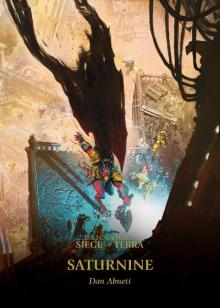 Saturnine
Saturnine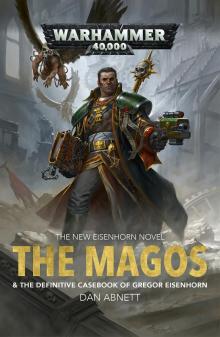 The Magos
The Magos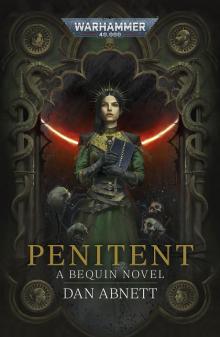 Penitent
Penitent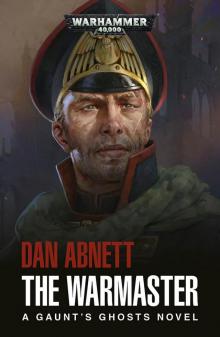 THE WARMASTER
THE WARMASTER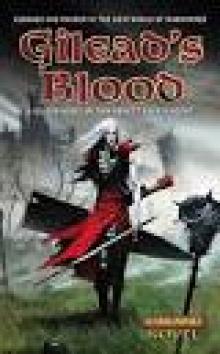 Gilead's Blood
Gilead's Blood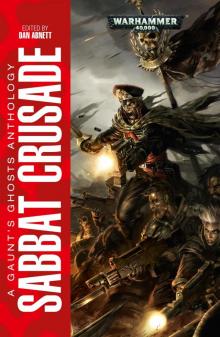 Sabbat Crusade
Sabbat Crusade![[Warhammer 40K] - Double Eagle Read online](http://i1.bookreadfree.com/i/03/16/[warhammer_40k]_-_double_eagle_preview.jpg) [Warhammer 40K] - Double Eagle
[Warhammer 40K] - Double Eagle![[Gaunt's Ghosts 02] - Ghostmaker Read online](http://i1.bookreadfree.com/i/03/16/[gaunts_ghosts_02]_-_ghostmaker_preview.jpg) [Gaunt's Ghosts 02] - Ghostmaker
[Gaunt's Ghosts 02] - Ghostmaker![[Gaunt's Ghosts 10] - The Armour of Contempt Read online](http://i1.bookreadfree.com/i/03/16/[gaunts_ghosts_10]_-_the_armour_of_contempt_preview.jpg) [Gaunt's Ghosts 10] - The Armour of Contempt
[Gaunt's Ghosts 10] - The Armour of Contempt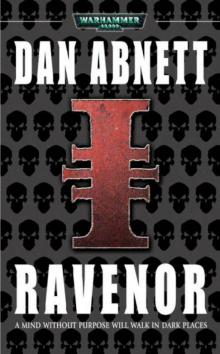 Ravenor
Ravenor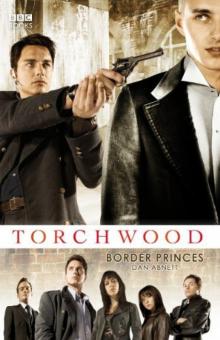 Border Princes
Border Princes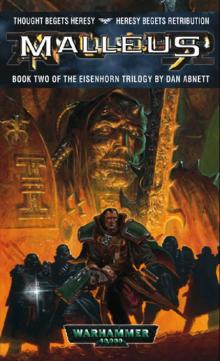 Warhammer - Eisenhorn 02 - Malleus (Abnett, Dan)
Warhammer - Eisenhorn 02 - Malleus (Abnett, Dan)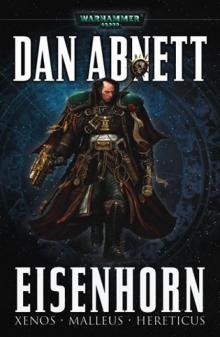 Eisenhorn Omnibus
Eisenhorn Omnibus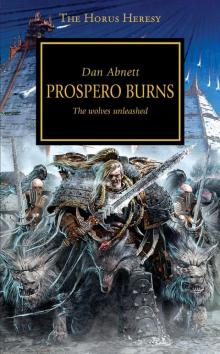 Prospero Burns
Prospero Burns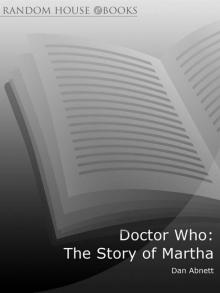 The Story of Martha
The Story of Martha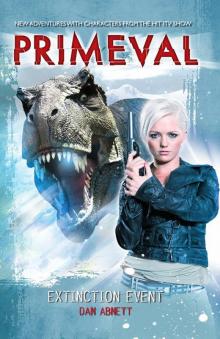 Extinction Event
Extinction Event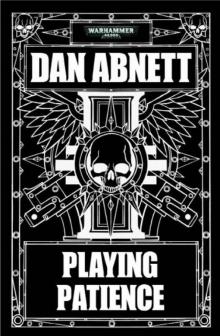 Playing Patience
Playing Patience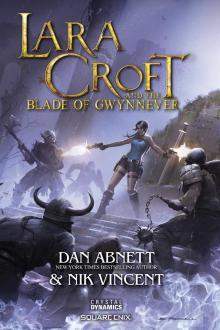 Lara Croft and the Blade of Gwynnever
Lara Croft and the Blade of Gwynnever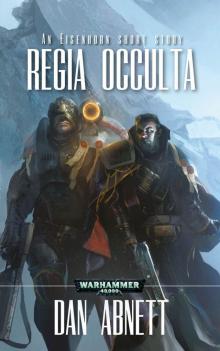 Regia Occulta
Regia Occulta![[Gaunt's Ghosts] - The Iron Star Read online](http://i1.bookreadfree.com/i/03/13/[gaunts_ghosts]_-_the_iron_star_preview.jpg) [Gaunt's Ghosts] - The Iron Star
[Gaunt's Ghosts] - The Iron Star![[Warhammer] - Fell Cargo Read online](http://i1.bookreadfree.com/i/03/13/[warhammer]_-_fell_cargo_preview.jpg) [Warhammer] - Fell Cargo
[Warhammer] - Fell Cargo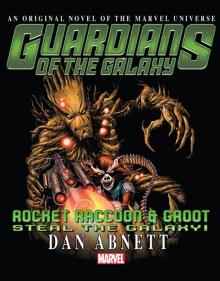 GUARDIANS OF THE GALAXY: ROCKET RACCOON & GROOT STEAL THE GALAXY!
GUARDIANS OF THE GALAXY: ROCKET RACCOON & GROOT STEAL THE GALAXY!![[Ravenor 01] Ravenor - Dan Abnett Read online](http://i1.bookreadfree.com/i/03/20/[ravenor_01]_ravenor_-_dan_abnett_preview.jpg) [Ravenor 01] Ravenor - Dan Abnett
[Ravenor 01] Ravenor - Dan Abnett![[Gaunt's Ghosts 06] - Straight Silver Read online](http://i1.bookreadfree.com/i/03/17/[gaunts_ghosts_06]_-_straight_silver_preview.jpg) [Gaunt's Ghosts 06] - Straight Silver
[Gaunt's Ghosts 06] - Straight Silver![[Ravenor 02] Ravenor Returned - Dan Abnett Read online](http://i1.bookreadfree.com/i/03/20/[ravenor_02]_ravenor_returned_-_dan_abnett_preview.jpg) [Ravenor 02] Ravenor Returned - Dan Abnett
[Ravenor 02] Ravenor Returned - Dan Abnett![[Gaunt's Ghosts 08] - Traitor General Read online](http://i1.bookreadfree.com/i/03/14/[gaunts_ghosts_08]_-_traitor_general_preview.jpg) [Gaunt's Ghosts 08] - Traitor General
[Gaunt's Ghosts 08] - Traitor General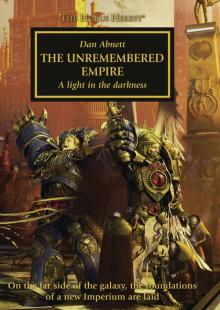 The Unremembered Empire
The Unremembered Empire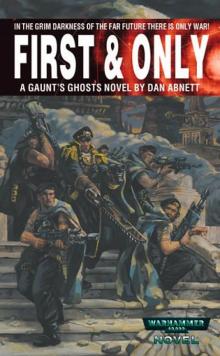 First and Only
First and Only![[Darkblade 05] - Lord of Ruin Read online](http://i1.bookreadfree.com/i/03/15/[darkblade_05]_-_lord_of_ruin_preview.jpg) [Darkblade 05] - Lord of Ruin
[Darkblade 05] - Lord of Ruin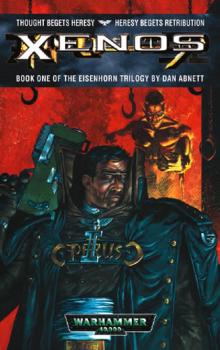 Warhammer - Eisenhorn 01 - Xenos (Abnett, Dan)
Warhammer - Eisenhorn 01 - Xenos (Abnett, Dan) Meduson
Meduson The Fall of Malvolion
The Fall of Malvolion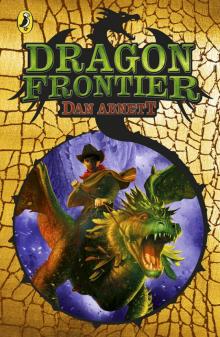 Dragon Frontier
Dragon Frontier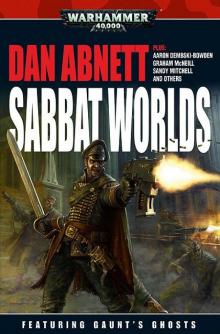 Sabbat Worlds
Sabbat Worlds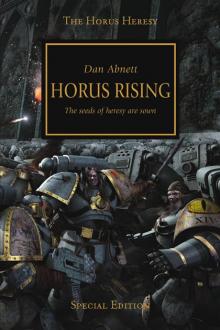 Horus Rising
Horus Rising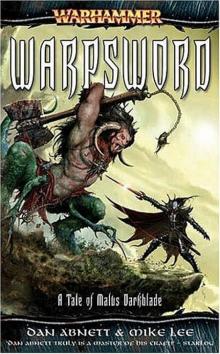 Warhammer - Darkblade 04 - Warpsword
Warhammer - Darkblade 04 - Warpsword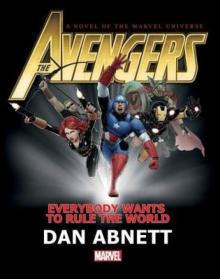 Avengers_Everybody Wants to Rule the World_Marvel Comics Prose
Avengers_Everybody Wants to Rule the World_Marvel Comics Prose![[Gaunt's Ghosts 04] - Honour Guard Read online](http://i1.bookreadfree.com/i/03/16/[gaunts_ghosts_04]_-_honour_guard_preview.jpg) [Gaunt's Ghosts 04] - Honour Guard
[Gaunt's Ghosts 04] - Honour Guard![[Darkblade 04] - Warpsword Read online](http://i1.bookreadfree.com/i/03/16/[darkblade_04]_-_warpsword_preview.jpg) [Darkblade 04] - Warpsword
[Darkblade 04] - Warpsword![[Gaunt's Ghosts 11] - Only in Death Read online](http://i1.bookreadfree.com/i/03/16/[gaunts_ghosts_11]_-_only_in_death_preview.jpg) [Gaunt's Ghosts 11] - Only in Death
[Gaunt's Ghosts 11] - Only in Death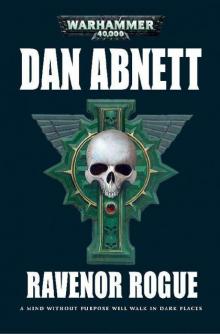 Ravenor Rogue
Ravenor Rogue![[Ravenor 03] Ravenor Rogue - Dan Abnett Read online](http://i1.bookreadfree.com/i/03/16/[ravenor_03]_ravenor_rogue_-_dan_abnett_preview.jpg) [Ravenor 03] Ravenor Rogue - Dan Abnett
[Ravenor 03] Ravenor Rogue - Dan Abnett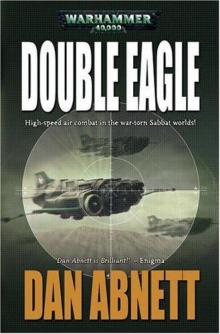 Double Eagle
Double Eagle Doctor Who - The Silent Stars Go By
Doctor Who - The Silent Stars Go By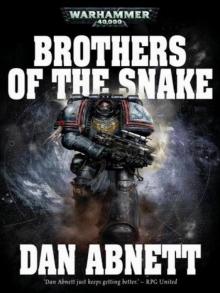 Brothers of the Snake
Brothers of the Snake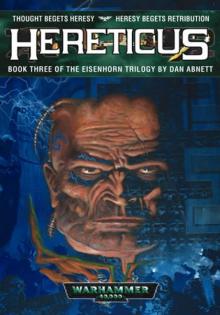 Warhammer - Eisenhorn 03 - Hereticus (Abnett, Dan)
Warhammer - Eisenhorn 03 - Hereticus (Abnett, Dan)![[Darkblade 03] - Reaper of Souls Read online](http://i1.bookreadfree.com/i/03/16/[darkblade_03]_-_reaper_of_souls_preview.jpg) [Darkblade 03] - Reaper of Souls
[Darkblade 03] - Reaper of Souls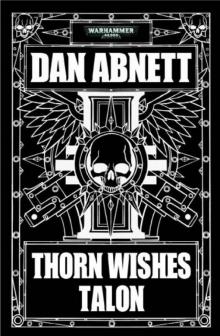 Thorn Wishes Talon
Thorn Wishes Talon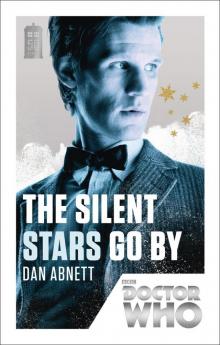 Doctor Who
Doctor Who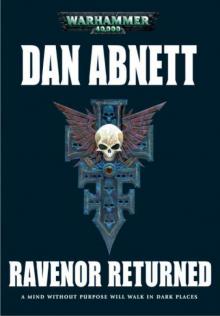 Ravenor Returned
Ravenor Returned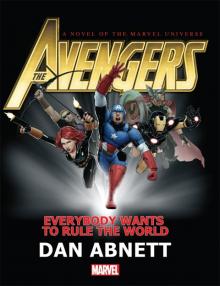 Avengers: Everybody Wants to Rule the World
Avengers: Everybody Wants to Rule the World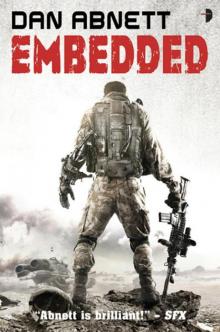 Embedded
Embedded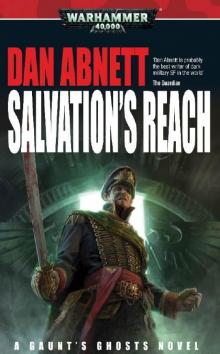 Salvation's Reach
Salvation's Reach![[Gaunt's Ghosts 03] - Necropolis Read online](http://i1.bookreadfree.com/i/03/19/[gaunts_ghosts_03]_-_necropolis_preview.jpg) [Gaunt's Ghosts 03] - Necropolis
[Gaunt's Ghosts 03] - Necropolis![[Darkblade 01] - The Daemon's Curse Read online](http://i1.bookreadfree.com/i/03/17/[darkblade_01]_-_the_daemons_curse_preview.jpg) [Darkblade 01] - The Daemon's Curse
[Darkblade 01] - The Daemon's Curse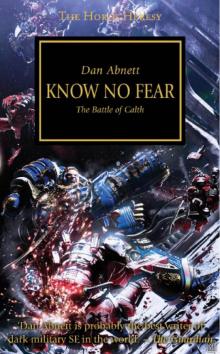 Know No Fear
Know No Fear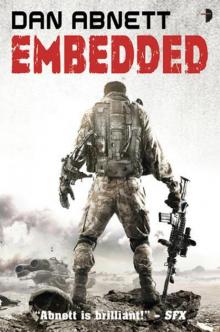 Dan Abnett - Embedded
Dan Abnett - Embedded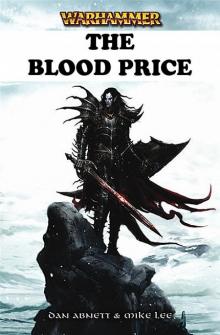 00.1 - The Blood Price
00.1 - The Blood Price![[Warhammer 40K] - Sabbat Worlds Read online](http://i1.bookreadfree.com/i/03/17/[warhammer_40k]_-_sabbat_worlds_preview.jpg) [Warhammer 40K] - Sabbat Worlds
[Warhammer 40K] - Sabbat Worlds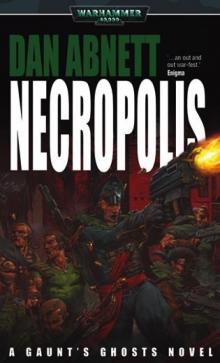 Necropolis
Necropolis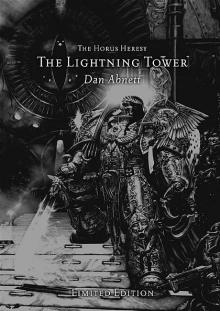 The Lightning Tower & The Dark King
The Lightning Tower & The Dark King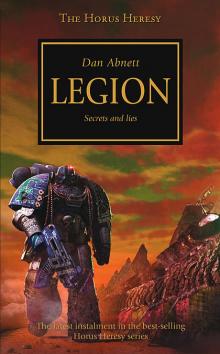 Legion
Legion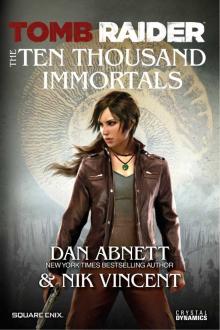 Tomb Raider: The Ten Thousand Immortals
Tomb Raider: The Ten Thousand Immortals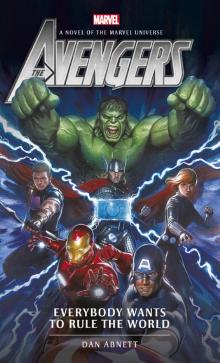 Avengers
Avengers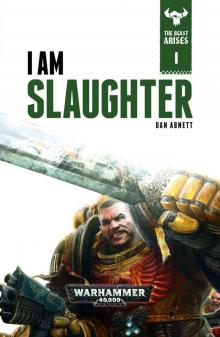 I am Slaughter
I am Slaughter![[Gaunt's Ghosts 07] - Sabbat Martyr Read online](http://i1.bookreadfree.com/i1/04/02/[gaunts_ghosts_07]_-_sabbat_martyr_preview.jpg) [Gaunt's Ghosts 07] - Sabbat Martyr
[Gaunt's Ghosts 07] - Sabbat Martyr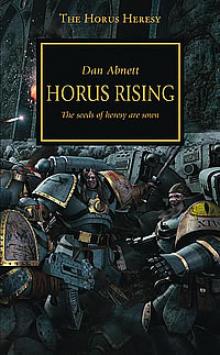 The Horus Heresy: Horus Rising
The Horus Heresy: Horus Rising![[Gaunt's Ghosts 01] - First & Only Read online](http://i1.bookreadfree.com/i1/04/02/[gaunts_ghosts_01]_-_first_&_only_preview.jpg) [Gaunt's Ghosts 01] - First & Only
[Gaunt's Ghosts 01] - First & Only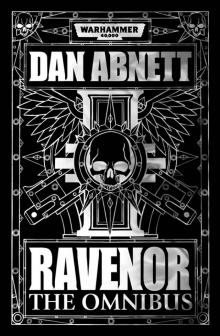 Ravenor Omnibus
Ravenor Omnibus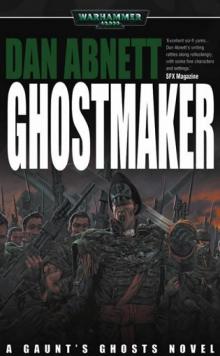 Ghostmaker
Ghostmaker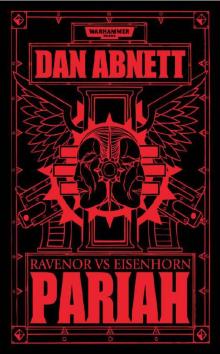 Pariah: Eisenhorn vs Ravenor
Pariah: Eisenhorn vs Ravenor![[Gaunt's Ghosts 12] - Blood Pact Read online](http://i1.bookreadfree.com/i1/04/04/[gaunts_ghosts_12]_-_blood_pact_preview.jpg) [Gaunt's Ghosts 12] - Blood Pact
[Gaunt's Ghosts 12] - Blood Pact![[Gaunt's Ghosts 05] - The Guns of Tanith Read online](http://i1.bookreadfree.com/i1/04/01/[gaunts_ghosts_05]_-_the_guns_of_tanith_preview.jpg) [Gaunt's Ghosts 05] - The Guns of Tanith
[Gaunt's Ghosts 05] - The Guns of Tanith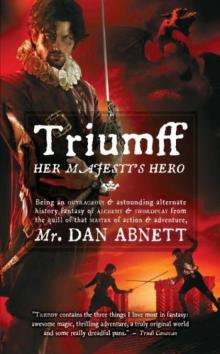 Triumff: Her Majesty's Hero
Triumff: Her Majesty's Hero![[Gaunt's Ghosts 09] - His Last Command Read online](http://i1.bookreadfree.com/i1/04/02/[gaunts_ghosts_09]_-_his_last_command_preview.jpg) [Gaunt's Ghosts 09] - His Last Command
[Gaunt's Ghosts 09] - His Last Command![[Darkblade 00.1] - The Blood Price Read online](http://i1.bookreadfree.com/i2/04/03/[darkblade_00_1]_-_the_blood_price_preview.jpg) [Darkblade 00.1] - The Blood Price
[Darkblade 00.1] - The Blood Price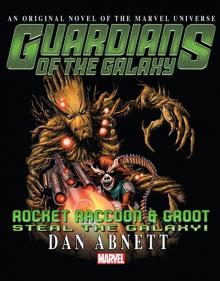 Guardians of the Galaxy: Rocket Raccoon and Groot - Steal the Galaxy!
Guardians of the Galaxy: Rocket Raccoon and Groot - Steal the Galaxy!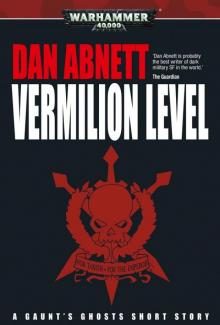 Vermilion Level
Vermilion Level In Remembrance
In Remembrance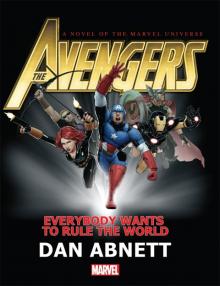 The Avengers: Everybody Wants to Rule the World
The Avengers: Everybody Wants to Rule the World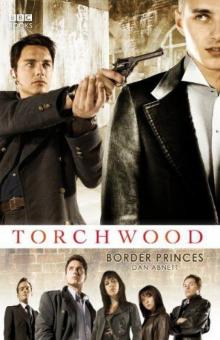 Border Princes t-2
Border Princes t-2![[Darkblade 02] - Bloodstorm Read online](http://i1.bookreadfree.com/i2/04/07/darkblade_02_-_bloodstorm_preview.jpg) [Darkblade 02] - Bloodstorm
[Darkblade 02] - Bloodstorm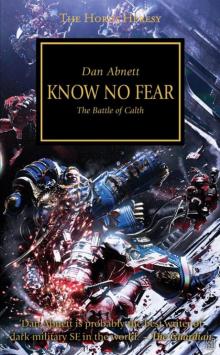 Know no fear. The Battle of Calth hh-19
Know no fear. The Battle of Calth hh-19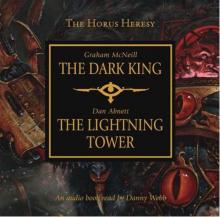 The Dark King and The Lightning Tower
The Dark King and The Lightning Tower